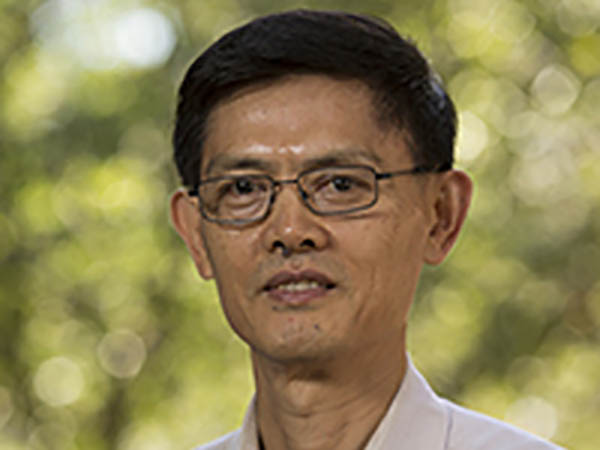You Can Never Trust a Chinese
Temple Physics Dept. chair accused of selling sensitive information to China

By Jeremy Roebuck
The chairman of Temple University's physics department was charged Thursday in an scheme to provide sensitive U.S. defense technology to entities in China, including its government.
Federal prosecutors allege Xiaoxing Xi, a world-renowned expert in the field of superconductivity, sought prestigious appointments in China in exchange for sharing information on a device invented by a private company in the United States.
Xi, a 47-year-old naturalized U.S. citizen who lives in Penn Valley, made his initial appearance in U.S. District Court on Thursday on four counts of wire fraud and was released on a $100,000 bond. He had not retained a lawyer and did not return calls for comment.
A Temple spokesman declined to comment Thursday evening on Xi's arrest.
And prosecutors released few details about the technology Xi was accused of sharing with the Chinese.
Superconductors lessen electrical resistance in metals and can dramatically improve the performance and efficiency of certain technology.
Federal prosecutors allege Xiaoxing Xi, a world-renowned expert in the field of superconductivity, sought prestigious appointments in China in exchange for sharing information on a device invented by a private company in the United States.
Xi, a 47-year-old naturalized U.S. citizen who lives in Penn Valley, made his initial appearance in U.S. District Court on Thursday on four counts of wire fraud and was released on a $100,000 bond. He had not retained a lawyer and did not return calls for comment.
A Temple spokesman declined to comment Thursday evening on Xi's arrest.
And prosecutors released few details about the technology Xi was accused of sharing with the Chinese.
Superconductors lessen electrical resistance in metals and can dramatically improve the performance and efficiency of certain technology.
Xi's expertise, he explained in his Temple faculty profile, was in researching the superconductive properties of various thin films.
According to his indictment, Xi repeatedly offered in e-mails to contacts in China to make the company a world leader in the superconductivity field.
Prosecutors allege he took a sabbatical from his university position in 2002 to work with an American firm identified in court filings only as "U.S. Company."
According to his indictment, Xi repeatedly offered in e-mails to contacts in China to make the company a world leader in the superconductivity field.
Prosecutors allege he took a sabbatical from his university position in 2002 to work with an American firm identified in court filings only as "U.S. Company."
Around the same time, experts at the company invented a device that prosecutors say "revolutionized the field of superconducting magnesium diboride thin film growth."
No name or further description of the technology is provided in court filings.
Prosecutors allege that starting in 2004, Xi took steps to buy the device from the company and eventually obtained a Defense Department grant to finance the purchase.
The company initially resisted Xi's efforts, the indictment says, but eventually agreed to provide him the device for a year in exchange for a signed agreement that he only use it for testing purposes and agree not to reproduce it or sell or transfer it to any third party.
Federal authorities say he repeatedly violated that agreement with the help of Chinese postdoctoral students and cite four 2010 e-mails to contacts in China in which Xi offered to build a "world-class thin film laboratory" in the country.
According to his Temple faculty profile, Xi joined the university's faculty in 2009 and was a National Science Foundation award winner in 1997.
Before teaching at Temple, he worked as a professor of physics at Pennsylvania State University.
No name or further description of the technology is provided in court filings.
Prosecutors allege that starting in 2004, Xi took steps to buy the device from the company and eventually obtained a Defense Department grant to finance the purchase.
The company initially resisted Xi's efforts, the indictment says, but eventually agreed to provide him the device for a year in exchange for a signed agreement that he only use it for testing purposes and agree not to reproduce it or sell or transfer it to any third party.
Federal authorities say he repeatedly violated that agreement with the help of Chinese postdoctoral students and cite four 2010 e-mails to contacts in China in which Xi offered to build a "world-class thin film laboratory" in the country.
According to his Temple faculty profile, Xi joined the university's faculty in 2009 and was a National Science Foundation award winner in 1997.
Before teaching at Temple, he worked as a professor of physics at Pennsylvania State University.
He received his doctorate in physics from Peking University in China in 1987.

The Chinese spies nest


No comments:
Post a Comment
Comments always welcome!